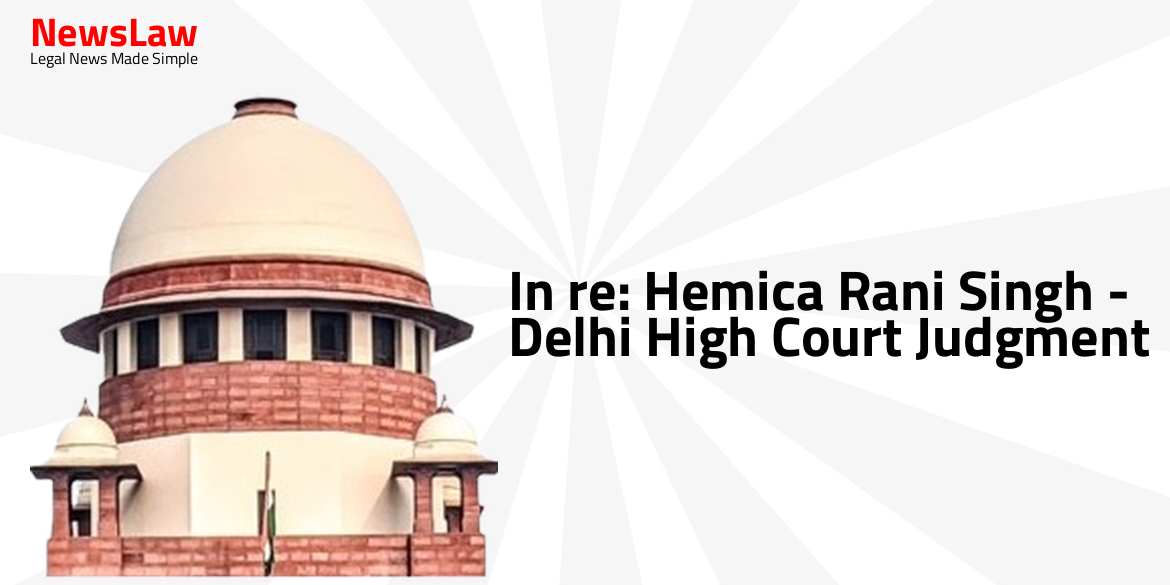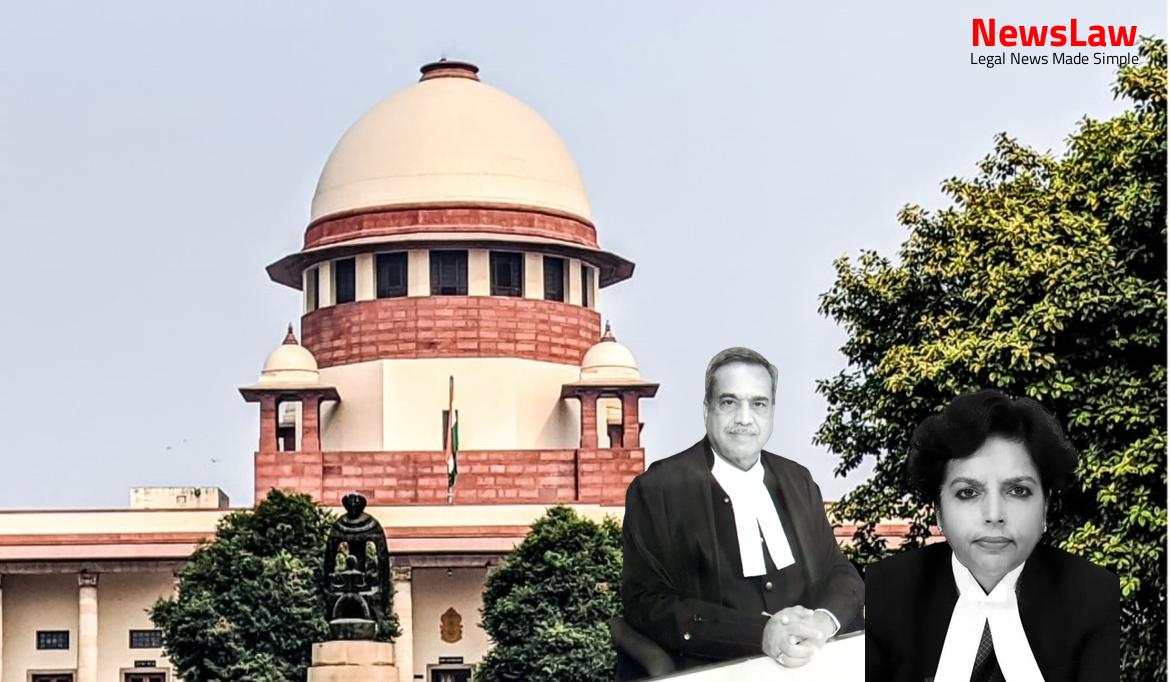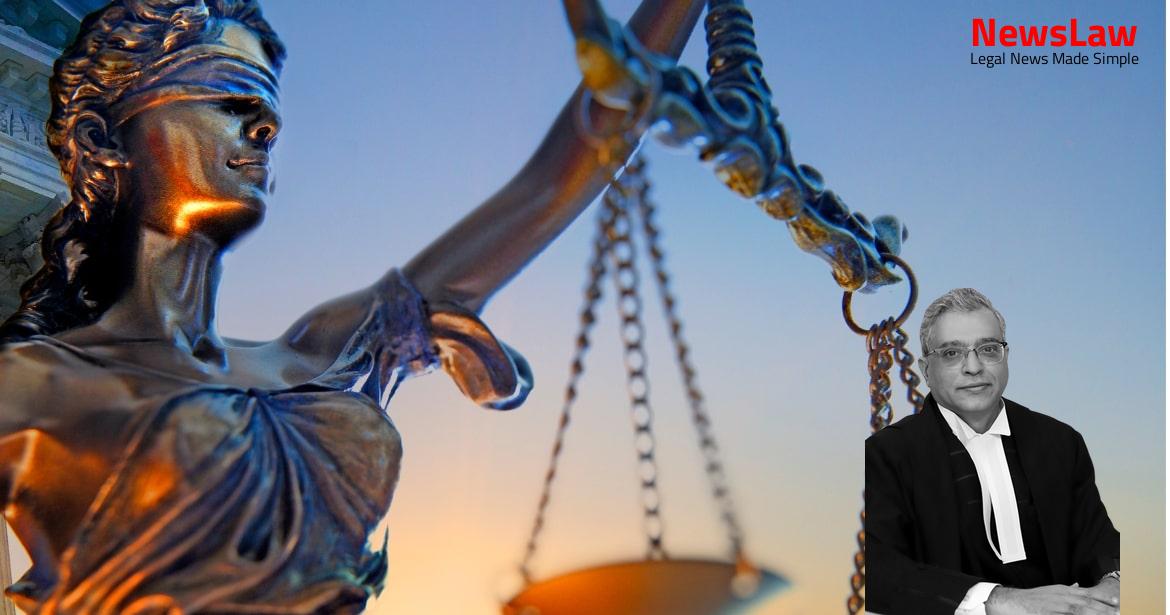The legal analysis in this case delves into the nuances of family settlements and the registration requirements for property decrees. The courts examined the significance of pre-existing rights in determining the validity of such settlements, along with the mandatory registration for specific types of decrees. This summary highlights the court’s focus on upholding family arrangements and ensuring fairness in property divisions among related parties.
Facts
- Civil Suit No.317 of 1991 was filed by Nawal Singh and two others against Smt. Jagno claiming decree of declaration as owners in possession of agricultural land in Village Garhi Bajidpur.
- Smt. Jagno settled the land in favor of the plaintiffs in a family settlement, who were her brother’s sons.
- Sher Singh’s widow inherited her late husband’s share of the agricultural property owned by Badlu.
- Plaintiffs filed Civil Suit No.79 of 1991 challenging the decree passed in Civil Suit No.317 of 1991, claiming it to be illegal and without legal necessity.
- The trial court passed a consent decree in favor of the plaintiffs in Civil Suit No.317 of 1991, declaring them owners in possession of half share of the land.
- Defendants No. 1 to 3 claimed land through a family settlement made by defendant No.4, which was affirmed by a Civil Court decree dated 19.08.1991.
- The First Appellate Court dismissed the appeal, affirming the findings of the trial court.
- Plaintiffs filed R.S.A. No.750 of 2002 against the judgment of the First Appellate Court.
- Second appeal was admitted to address the question of law regarding the registration requirement of a decree.
- It was held that the defendants had a pre-existing right in the suit property due to a family settlement.
- The High Court ruled in favor of the defendants-respondents, stating that the decree did not require registration.
- The close relationship and affection between Smt. Jagno and the defendants were noted by the courts.
- Judgment and decree in Civil Suit No.317 of 1991 were found to merely recognize existing rights created by an oral family settlement.
- The First Appellate Court and the High Court both held that registration was not necessary for the decree.
- Under Section 14(1) of the Indian Succession Act, a Hindu female becomes a full owner of property acquired before the Act.
- The trial court rejected the argument that without registration of the decree, no right or title would pass to the defendants.
- Registration is deemed necessary only when fresh rights are created for the first time by the decree itself.
Also Read: Analysis of Seniority Determination in Armed Forces Personnel Case
Arguments
- Decree or order granting new right, title or interest in immovable property of value of Rs.100 or above is compulsorily registrable.
- Smt. Jagno was required to transfer her absolute share in accordance with laws such as the Transfer of Property Act, Indian Registration Act, and Indian Stamp Act.
- The compromise decree needed to be registered as per Section 17 of the Indian Registration Act.
- The unregistered decree dated 19.08.1991 did not confer valid title to defendant Nos. 1 to 3.
- The courts erred in upholding the unregistered decree as it should have been declared inoperative.
- Refutation by the respondent’s counsel stating that defendant Nos. 1 to 3 had pre-existing rights in the suit property.
- Family settlement can only occur between members with antecedent title or pre-existing rights in the property.
- The decree dated 19.08.1991 was exempted from registration as per Section 17(2)(vi) of the Indian Registration Act.
- The expression ‘family’ for the purpose of family settlement is to be given a wide meaning covering all related members.
- The family settlement in Civil Suit No.317 of 1991 could have been made out of love and affection.
- Defendant No.4, Smt. Jagno, could have settled the properties in favor of defendant Nos. 1 to 3 out of love and affection as they were her brother’s sons.
- The Civil Suit No.79 of 1991 sought a declaration that the decree in Civil Suit No.317 of 1991 was illegal, invalid, and without legal necessity or consideration.
- The bone of contention was the decree dated 19.08.1991 declaring the rights of defendants No.1 to 3 in possession of the suit land.
- The decree in Civil Suit No.317 of 1991 only declared the existing rights based on a family settlement.
- Defendant Nos. 1 to 3 were not strangers to Smt. Jagno as they were her brother’s sons, making a family settlement with them plausible.
Also Read: Analysis of Circumstantial Evidence in Criminal Conviction
Analysis
- The courts have taken a liberal and broad view of the validity of family settlements, always seeking to uphold and maintain them.
- Family settlements must involve parties with some antecedent title, claim, or interest in the property acknowledged in the settlement.
- A compromise decree does not require registration if it is bona fide and not a device to avoid stamp duty or registration laws.
- If a decree is based on a compromise involving immovable property not part of the suit, it requires registration.
- The family arrangement must be fair and equitable, settling bona fide disputes to be final and binding on the parties.
- Antecedent title acknowledged in a family arrangement exempts the decree from requiring registration.
- The courts consider the parties’ pre-existing rights to the property when deciding on registration requirements.
- The High Court’s position on registration of the compromise decree was that it was against statutory provisions.
- In cases where a decree relates to the suit property, it may not require registration under specific clauses of the Registration Act.
- Decrees on compromise not involving property subject to the suit may not need registration.
- Compromise decrees creating rights in immovable property worth Rs. 100 or upwards need registration.
- The family arrangement’s fairness and equity are crucial factors in determining the validity and registration requirements of settlements.
- Section 15(1) lays down general rules of succession in the case of female Hindus.
- The judgement references the Indian Registration Act and its applicability to instruments of gift, non-testamentary instruments, and leases of immovable property.
- Certain exemptions are provided by the State Government for leases of shorter durations and lower annual rents.
- Clause (b) of sub-section (1) does not apply to certain decrees or orders of a Court.
- The submission in the case was regarding the requirement of registration under Section 17(1)(b) for a decree that created rights in favor of the plaintiffs.
- Family settlement must involve members related in some way and with possible claims to the property.
- Family arrangement aims to settle disputes among family members for harmony and peace.
- Definition of ‘family’ in settlements includes those with antecedent titles or semblance of claim.
- Family arrangements may not require registration if they are not reducing terms into writing.
- Courts tend to uphold family arrangements to avoid trivial objections.
- Family settlements are enforced with a special equity even if not intended as a compromise.
- Family settlements are meant to avoid prolonged litigation and maintain family unity and goodwill.
- Registration for a settlement only necessary if terms reduced to writing creating new rights in property.
- Compromise decrees not requiring registration can declare pre-existing rights but not create new ones.
- Adverse possession cannot lead to ownership claim through declaratory decree.
- Family settlements require fair division of properties between family members voluntarily and without duress.
- In the case of family arrangements, judgments may not always require registration.
- The defendants-respondents were not strangers to the family
- The appeal lacks merit based on the discussions on the questions raised
Also Read: Constitutional Interpretation on Multi-Member Wards in Municipalities
Decision
- Parties shall bear their own costs.
- All the Courts have rightly dismissed the suit of the plaintiffs-appellants.
- No interference is needed in the decision of dismissing the suit.
- The appeal is dismissed.
Case Title: KHUSHI RAM Vs. NAWAL SINGH (2021 INSC 106)
Case Number: C.A. No.-005167-005167 / 2010



